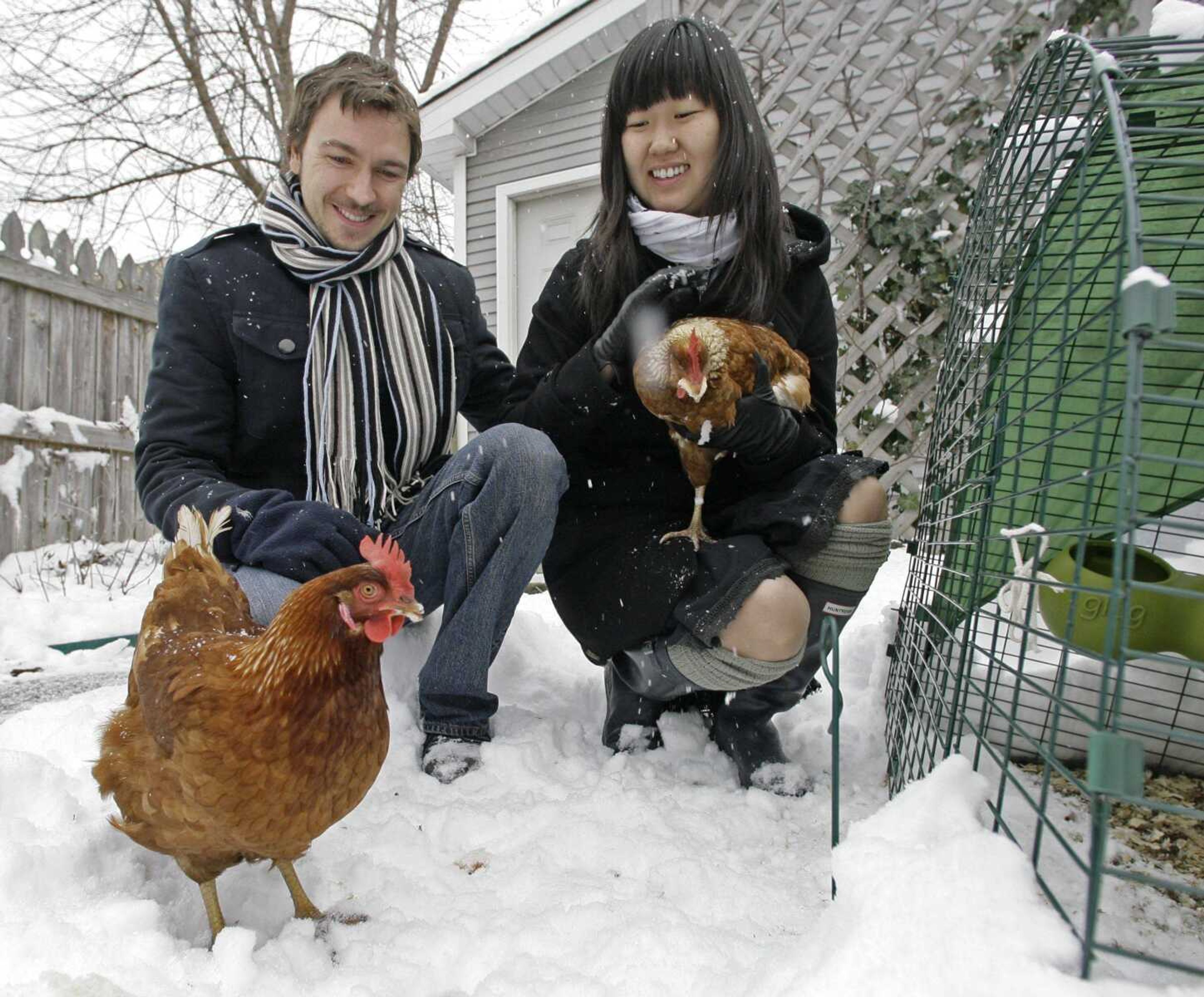CHICAGO -- The same city that put out the welcome mat for bees and fought to protect goose livers is poised to send a different message to residents: We don't want your clucking chickens.
The city council will vote Wednesday on a proposal to ban chickens, a former barnyard denizen that is pecking its way into cities across the country as part of a growing organic food trend among young professionals and other urban dwellers.
Chicken lovers say the birds make great pets, don't take up much backyard space and provide tasty, nutritious eggs.
Other cities, from New York to Seattle, are embracing the trend.
Some, including Madison, Wis., and Kent, Wash., have passed ordinances allowing people to keep chickens. In Ann Arbor, Mich., a councilman says he plans to introduce a resolution to allow hens to be kept for eggs, and the Board of Zoning Appeals in the upscale Indianapolis suburb of Carmel recently approved an exception to city rules to allow a family to keep three hens in their backyard.
But the Chicago alderman who proposed the ban says all this crowing about chickens ignores the fact that there's another population that likes it when these birds move into the neighborhood: rodents.
"This past summer I started hearing that residents were letting chickens out of their yard and they were leaving poop and mice were feeding off of it," said Alderman Lona Lane. "Then we started getting rodent-control problems and, sure enough, it was the chickens."
Then there are the concerns about parasites the birds might carry and the potential they could transmit bird flu if it makes its way to the U.S., said Dr. Marek Digas, the supervising veterinarian at the city's Commission on Animal Care and Control.
"It is something we should consider," he said.
Many neighbors of chicken-keepers apparently aren't happy, either. This year, the city received more than 700 complaints about chickens -- though mostly about the racket made by roosters.
In Chicago, Kim Jackson said that her two chickens, Papoo and Chalmers, do a little quiet talking but that's it. And she says there's no smell to speak of, in large part because she and her husband regularly clean up after them.
But even if they didn't, "it's not nearly as bad as a dog as far as how far-reaching the smell will get," she said.
Although there are no firm statistics on the number of city chickens, they're becoming so popular that Backyard Poultry magazine was relaunched a couple of years ago after halting publication in the 1980s. And Paul said U.S. sales of his company's designer chicken coops have doubled every year since they were introduced here in 2005.
Those who have eaten eggs from their own chickens say there's no comparison with store-bought eggs. They say they know exactly what goes into them because they are the ones feeding the chickens, and the eggs are far fresher and taste better.
"And they're so productive for the garden," said Owen Taylor, training and livestock coordinator of Just Food, a New York-based not-for-profit group. "They aerate the soil, eat bugs and they look like little tractors, tilling the soil."
Surprised at Chicago
Taylor said he was surprised that Chicago -- a city that banned foie gras in restaurants over concerns about cruelty to geese and embraced rooftop gardening -- isn't more welcoming of chickens.
"The mayor has bees on the roof of City Hall so I was thinking Chicago was ahead of its time in terms of livestock regulations," said Taylor.
Some say the experience of chicken-keepers in other cities proves Chicago's proposed ordinance is unnecessary.
"You hear the same argument [that] they're loud, they smell ... that there would be wild chickens running amok in Seattle, but that hasn't been the case,' said Angelina Shell, of Seattle Tilth, a not-for-profit organic gardening and urban ecology group.
What may doom them in Chicago, say chicken supporters is, that for all the talk about noise, smell and disease, chickens simply don't look like they belong in today's modern city.
"It's a gentrification issue," said Erika Allen of Growing Power, a not-for-profit group that promotes urban gardening around the country.
"People move in and they don't want chickens next to their house so they go and complain."
Paul wonders if it all boils down to people being chicken of chickens.
"Chickens are all over and yet if you put one in your back garden, people look at it like it's an exotic animal."
Connect with the Southeast Missourian Newsroom:
For corrections to this story or other insights for the editor, click here. To submit a letter to the editor, click here. To learn about the Southeast Missourian’s AI Policy, click here.







